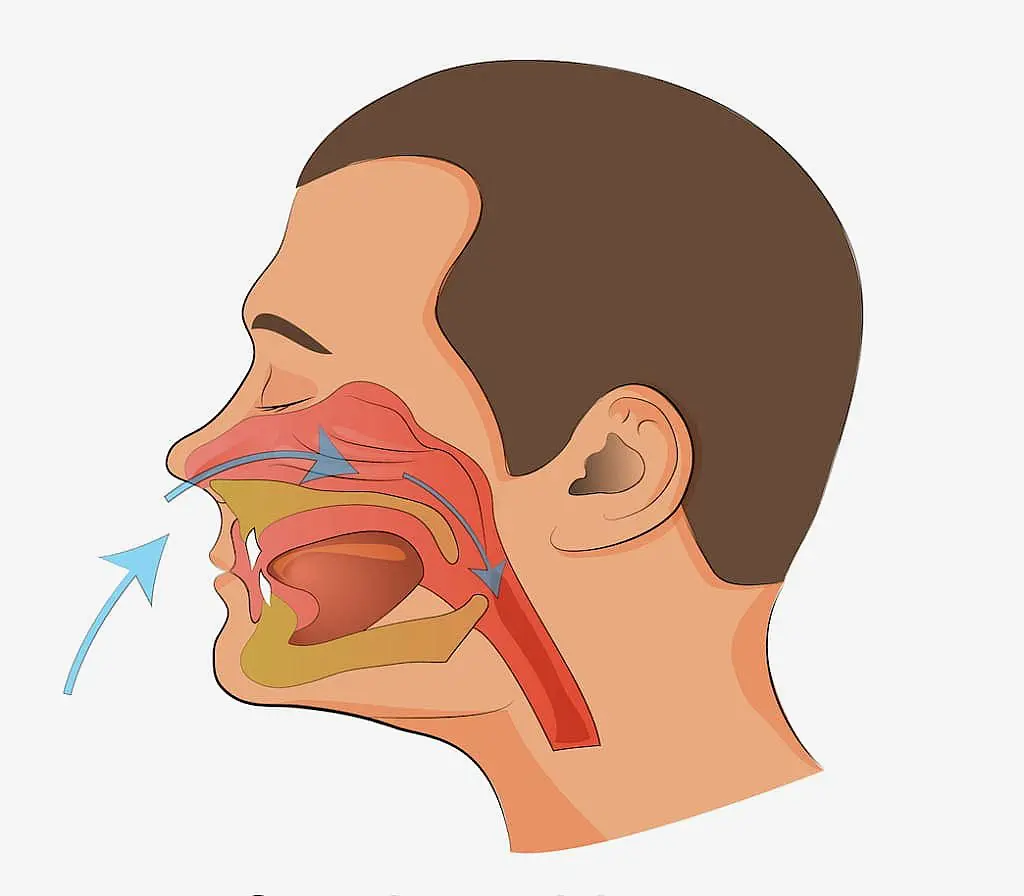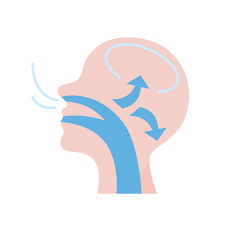Causes and Effects of Mouth Breathing

Causes of mouth breathing
Many factors can lead to mouth breathing, including ongoing allergies (like pollen allergies), persistent nasal blockage, large tonsils, or sleep apnea. Individuals often experience heightened symptoms due to local allergens and environmental conditions.

Mouth breathing affects overall health
Mouth breathing affects how well we breathe and our health. Without proper nasal filtration, individuals may become more susceptible to respiratory infections, decreased oxygen intake, and inefficient breathing.

Relationship between mouth breathing and dry mouth
Warm weather can worsen the effects of mouth breathing by drying out the mouth. This often results in xerostomia, or dry mouth, which can lead to oral health issues if not treated.

Connection between mouth breathing and sleep apnea
Mouth breathing and sleep apnea often occur together, causing problems like poor sleep and daytime fatigue. However, addressing mouth breathing often helps enhance sleep quality, highlighting the need to treat both issues for improved health and well-being.

Effects of mouth breathing on brain function and cognitive abilities (brain fog)
Breathing mainly through the mouth can impact brain function, leading to challenges such as difficulty concentrating and mental fatigue. These issues can disrupt daily activities and illustrate the importance of addressing mouth breathing to enhance focus and mental health.

Impact of mouth breathing on oral health and bad breath
Our practice frequently treats individuals whose mouth breathing has led to issues such as bad breath and dental problems. The lack of saliva allows harmful bacteria to thrive, increasing the risk of gum disease and cavities.
Health Risks Associated with Mouth Breathing
Mouth breathing, whether in adults or children, increases the risk of respiratory issues like colds, sinus infections, and the flu. This occurs because bypassing the nose’s natural filtering system allows more germs to enter the body directly. Additionally, long-term mouth breathing can worsen nasal blockage, making it even harder to transition back to nasal breathing.
The association between mouth breathing and lung health is concerning, as it can contribute to respiratory issues over time. In young children, the effects of mouth breathing can be particularly severe. Chronic mouth breathing may lead to improper facial or dental development, poor sleep, and even behavioral issues. This makes early intervention essential.
Diagnosis and Treatment
At Chauncey Orthodontics, we utilize advanced diagnostic tools to analyze breathing patterns and their underlying causes. The clinic provides personalized treatments, ranging from orthodontic appliances to breathing exercises, and collaborates with other specialists when needed.
Prevention and Management
Various methods for supporting and improving nasal breathing in children include breathing exercises and focused management strategies. To begin, adopting healthy lifestyle habits such as maintaining a balanced diet, staying sufficiently hydrated, and engaging in regular exercise can reduce nasal congestion and promote better breathing through the nose. Additionally, practicing specific breathing techniques may help optimize breathing patterns.
Educating children about the importance of nasal breathing and fostering an understanding of proper breathing practices is also beneficial. By integrating lifestyle changes with targeted breathing exercises, a comprehensive approach can promote and maintain healthy nasal breathing habits in children.

Improving Your Breathing and Health with Airway Orthodontics
We employ advanced 3D imaging to assess airway structures and provide complete solutions to our patients. This approach not only addresses breathing issues but also any orthodontic concerns, giving patients the highest quality care.


